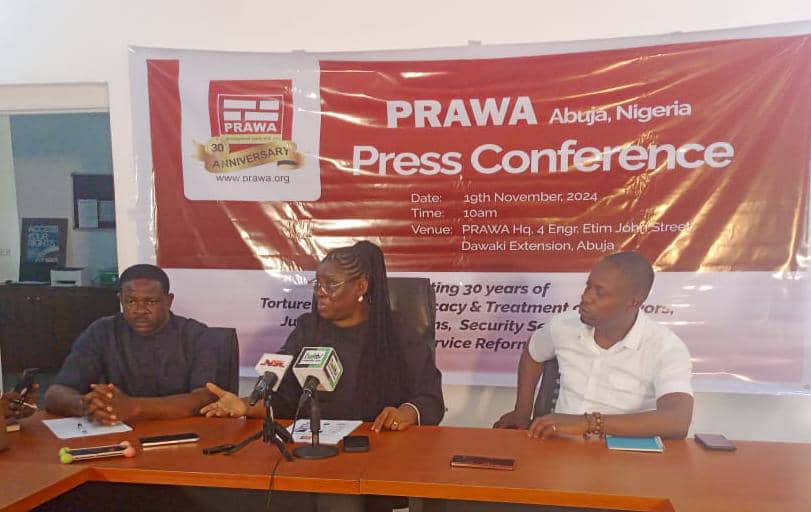Headline
PRAWA @30: Founder Calls for Correctional Service Reforms, Decongestion

PRAWA @30: Founder Calls for Correctional Service Reforms, Decongestion
The Prisoners Rehabilitation and Welfare Action (PRAWA) has reiterated the urgent need for correctional decongestion and full implementation of the Nigerian Correctional Service Act of 2019.
This call came during PRAWA’s international conference marking its 30th anniversary, where stakeholders from various countries convened to chart a future for improved correctional practices in Nigeria.
In her address, PRAWA’s Executive Director, Dr. Uju Agomoh, highlighted the progress made in correctional reforms since the organization’s inception but emphasized the need to institutionalize these reforms across the country.
“When PRAWA started, no NGO partnered with correctional services like this. Correctional officers were not invited to conferences. Today, the landscape has changed significantly, but we need to deepen this impact by embedding PRAWA in all state commands and correctional centers,” she said.
“The key focus of the conference was on strengthening partnerships and ensuring that correctional officers are empowered as champions of best practices.
“Correctional officers wear the shoe; they know where it pinches. Every officer must be trained to become a leader in rehabilitation efforts,” she added.
Agomoh also stressed the importance of addressing the root causes of recidivism, pointing out that the thin line between custodial centers and the community often goes unrecognized.
“People reoffend because their needs were not addressed while in custody. We need a holistic approach that involves proper needs assessments, education, and vocational training. The Nigerian Correctional Service Act already provides for this, but implementation has been slow.”
She also noted that over 70% of inmates in correctional centers are awaiting trial, with figures as high as 96% in some states.
“We must reduce the population of unconvicted individuals. The justice sector needs to expedite processes to ensure that only convicted individuals occupy correctional facilities. This will significantly decongest the system.”
She further called for increased investment in non-custodial measures, highlighting that such initiatives are cost-effective and keep offenders connected to their communities.
“Non-custodial measures save resources. When inmates are in custody, the government spends on feeding and upkeep. But with non-custodial options, they remain within the community and contribute productively.”


